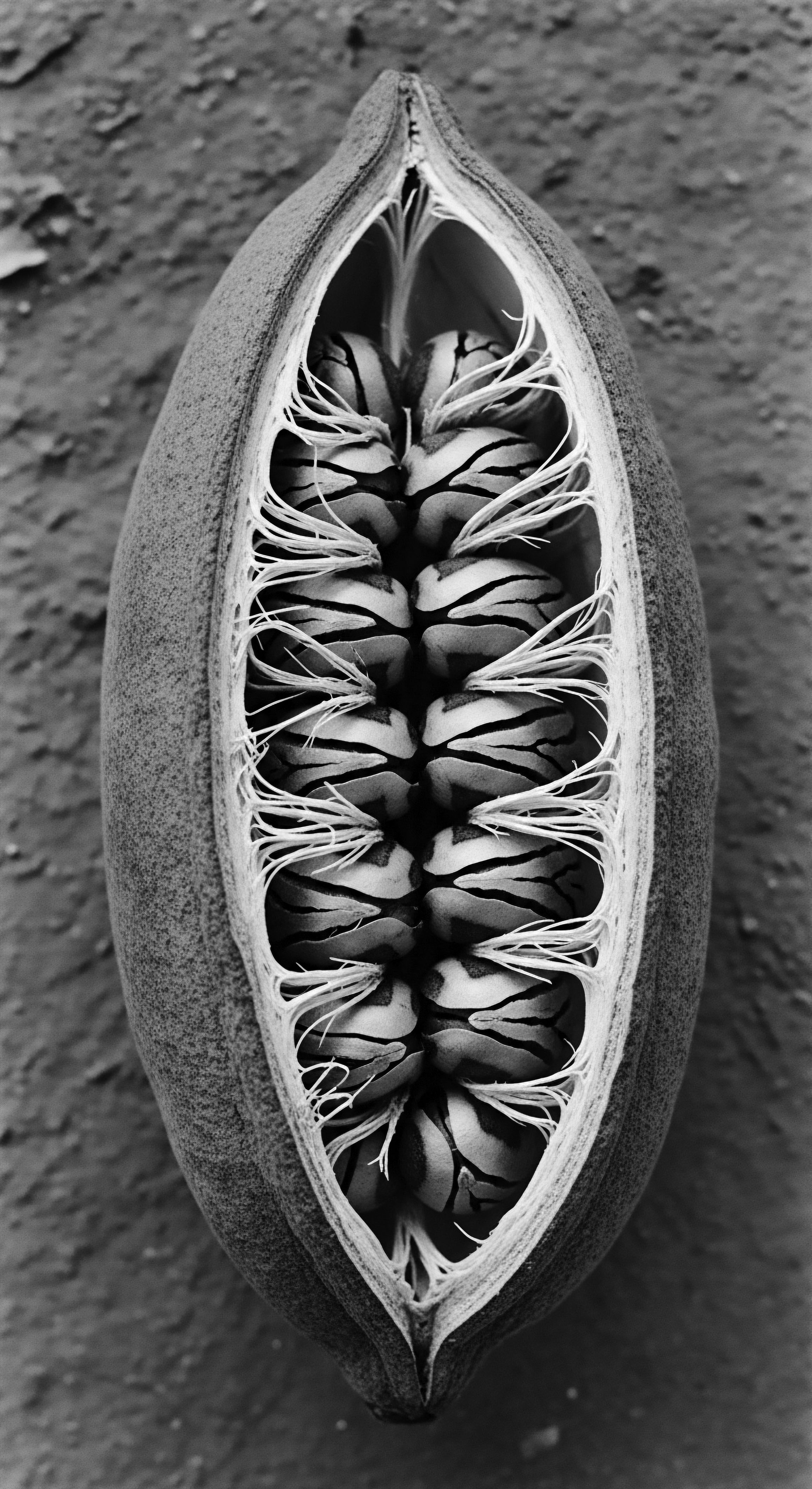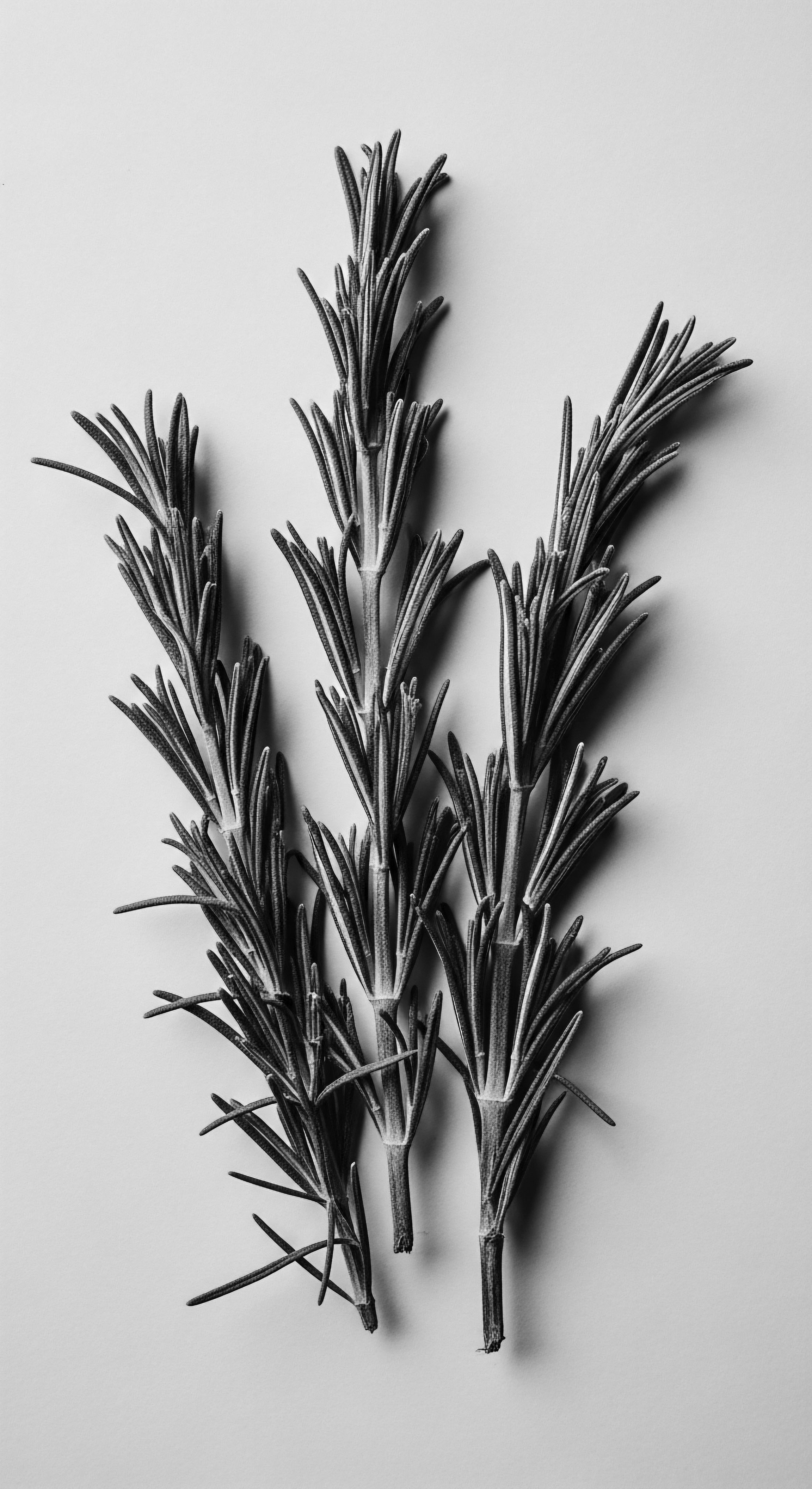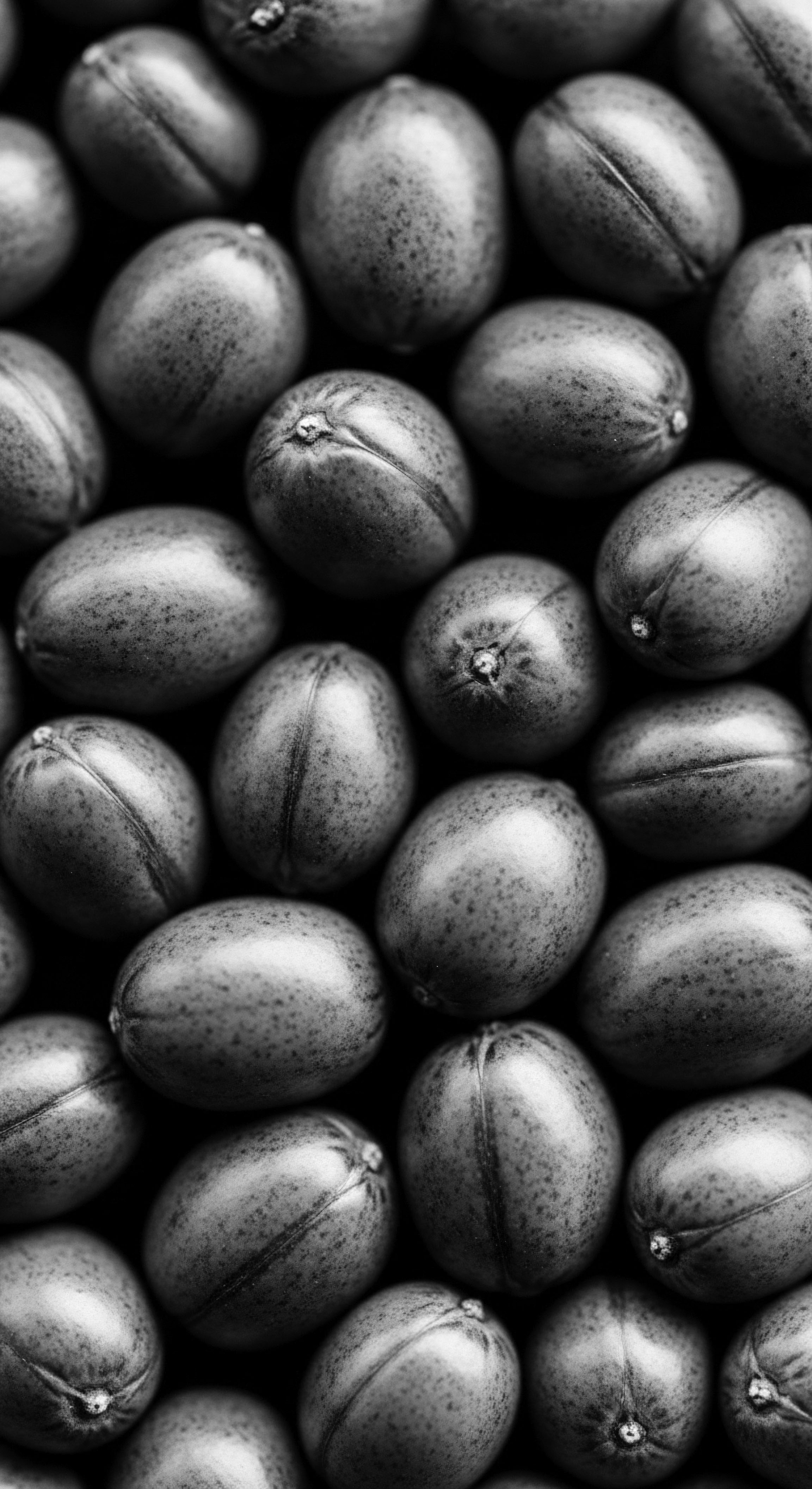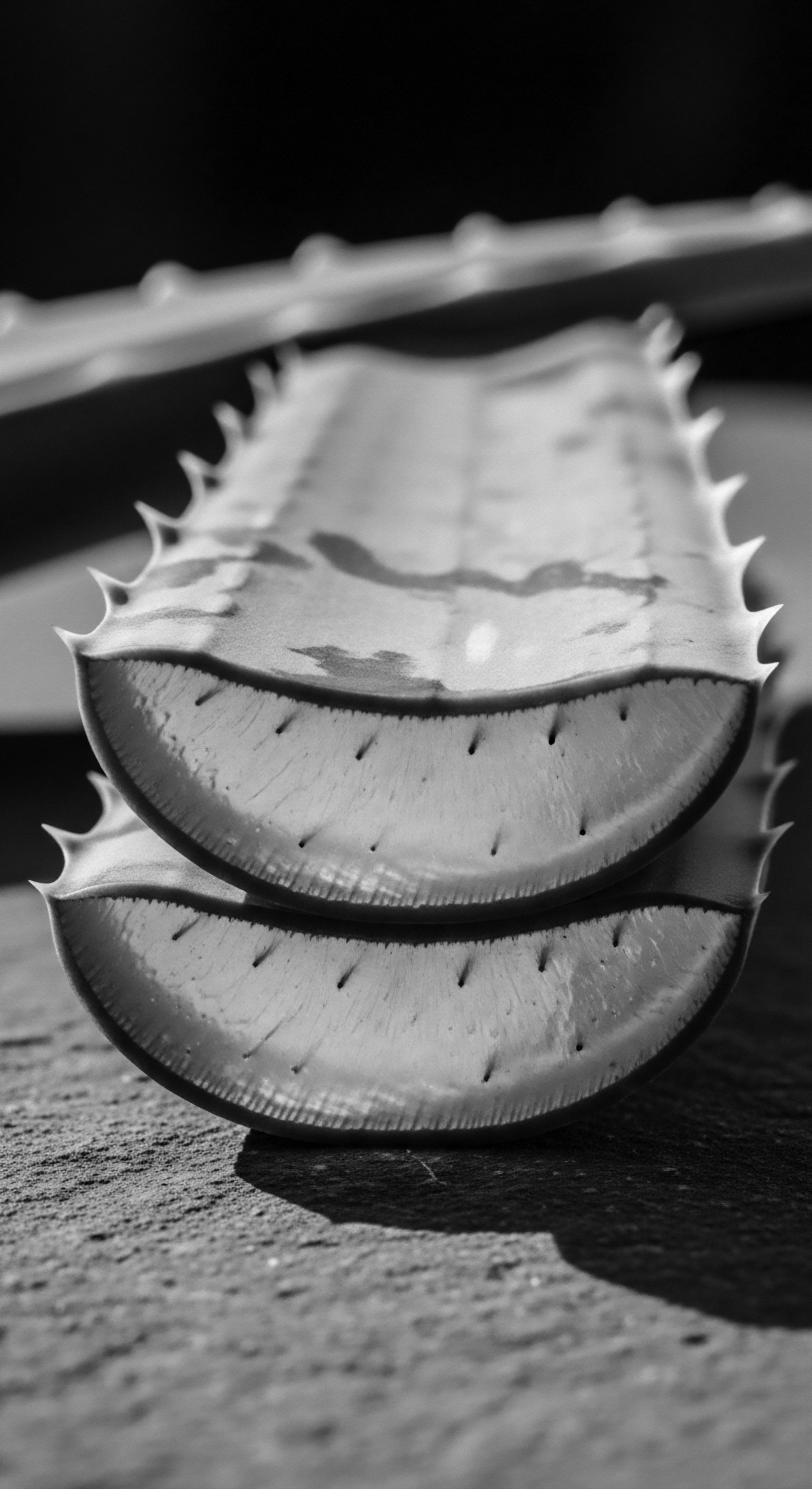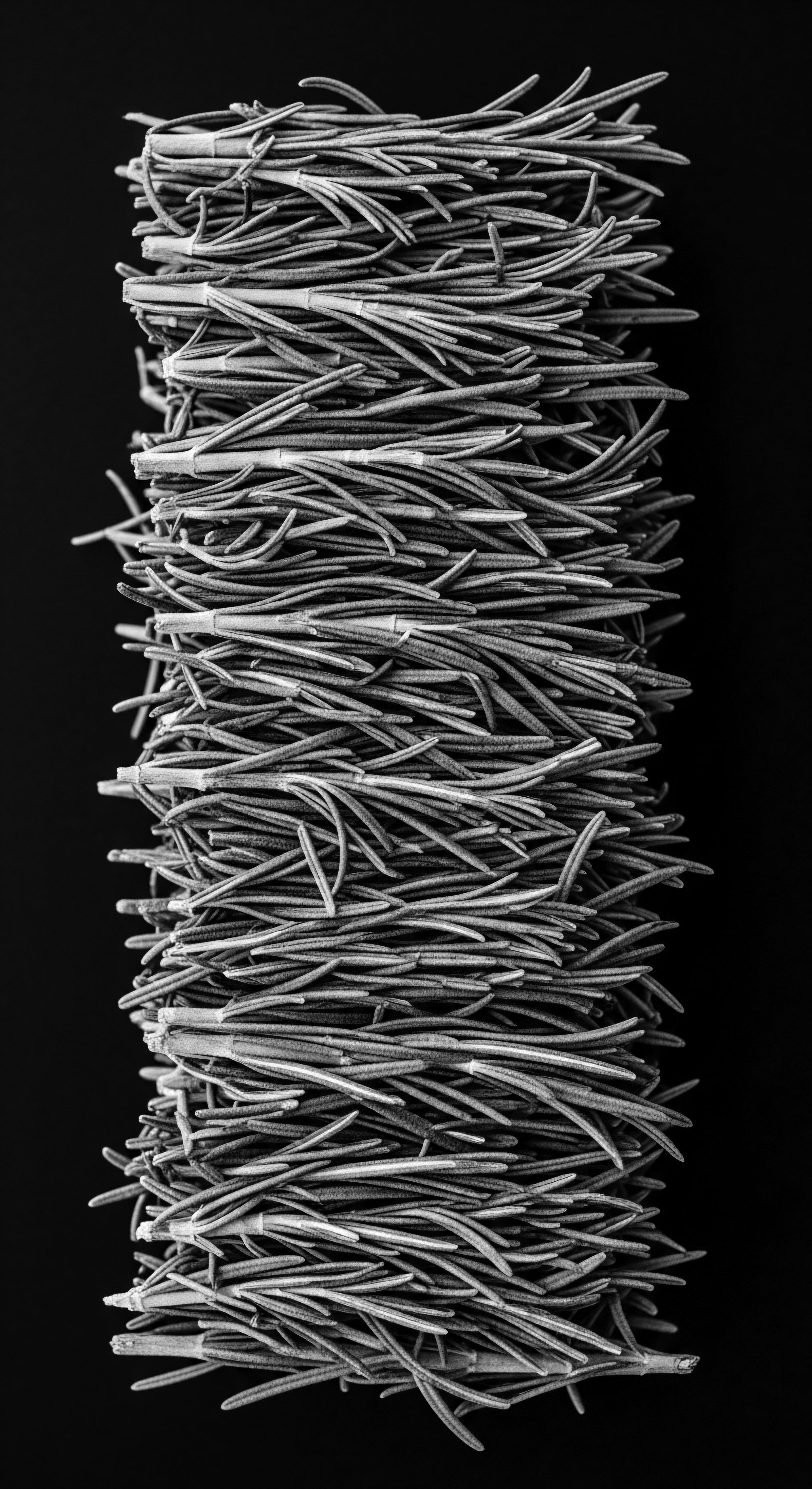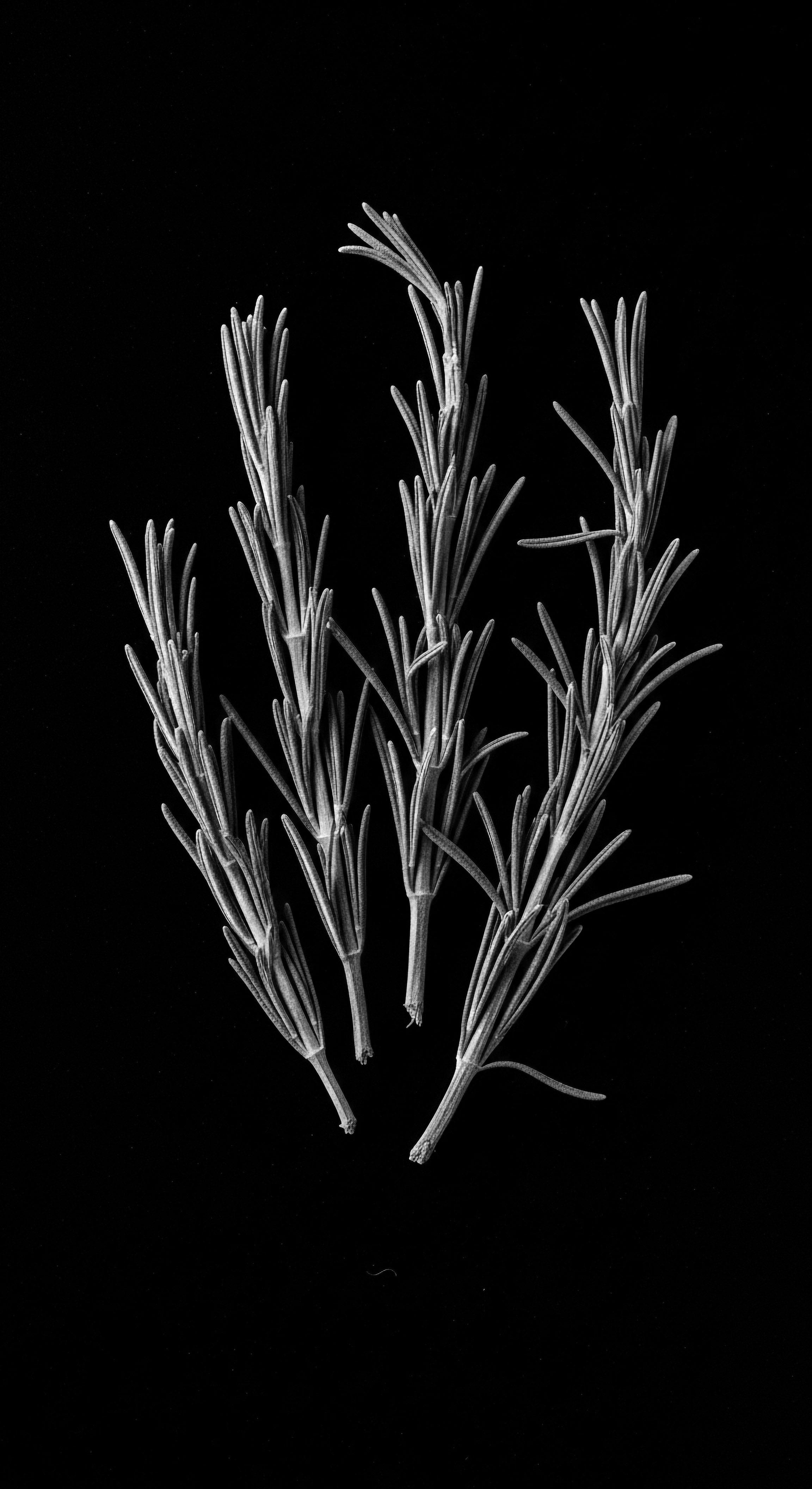
Fundamentals
The very notion of Coconut Oil, within Roothea’s living library, extends far beyond a mere cosmetic ingredient; it is a profound testament to ancestral wisdom, a liquid legacy deeply interwoven with the story of textured hair. Its fundamental meaning is rooted in the life-giving generosity of the coconut palm, Cocos nucifera, often revered as the “Tree of Life” in tropical regions. This designation, far from hyperbole, speaks to the palm’s capacity to provide sustenance, shelter, and healing across generations, making its oil a foundational element in daily existence and spiritual practices. For communities whose heritage traces back to lands where this palm flourished ❉ from the sun-drenched shores of the Pacific Islands to the vibrant coasts of West Africa and the Caribbean ❉ Coconut Oil was not simply a commodity; it was a sacred offering, a protector, and a conduit for communal bonds.
The initial understanding of Coconut Oil, particularly for those new to the profound connections between natural elements and textured hair care, begins with its origin: a rich, emollient extract from the mature meat of the coconut. This oil, in its purest form, was intuitively recognized by early ancestral communities for its remarkable ability to soothe, seal, and nourish. Its presence in ancient rituals, passed down through oral traditions and embodied practices, signifies its deep cultural import. This simple explanation belies a complex history of reciprocal relationship between humanity and the botanical world, a relationship where observation and lived experience shaped a nuanced understanding of plant properties long before the advent of modern scientific inquiry.

Echoes from the Source: The Palm’s Ancient Embrace
The journey of Coconut Oil into the heart of textured hair heritage begins with the very tree that yields it. The coconut palm, a resilient sentinel of tropical climes, has for millennia offered its bounty to human hands. Its fronds, its water, its fibrous husk, and most significantly, its oil, formed the bedrock of life for countless communities.
The early discernment of the oil’s particular properties, especially its richness and its protective qualities, marked it as distinct among other natural emollients. Ancestral communities, keenly attuned to the rhythms of their environment, recognized its unique density and how it interacted with hair, providing a sheen and a suppleness that other plant extracts might not.
Consider the ancient societies of the Pacific Islands, where the coconut palm is not merely a plant but a genealogical elder, a source of profound spiritual connection. In these cultures, the preparation of coconut oil was often a communal endeavor, a ritualistic practice imbued with songs, stories, and shared laughter. This process, involving the grating of fresh coconut meat, the pressing of the milk, and its subsequent fermentation or gentle heating, was itself an act of cultural preservation.
The oil thus produced, known by various names across different islands, was a central element in daily life, used not only for culinary purposes but also for anointing the body, preparing for ceremonies, and maintaining the health and beauty of hair. The significance of this oil extended to rites of passage, marking individuals’ transitions through life, affirming their connection to the land and to their lineage.
Coconut Oil, in its elemental meaning, embodies a living archive of ancestral ingenuity, a testament to the profound connection between the earth’s bounty and the resilience of textured hair heritage.
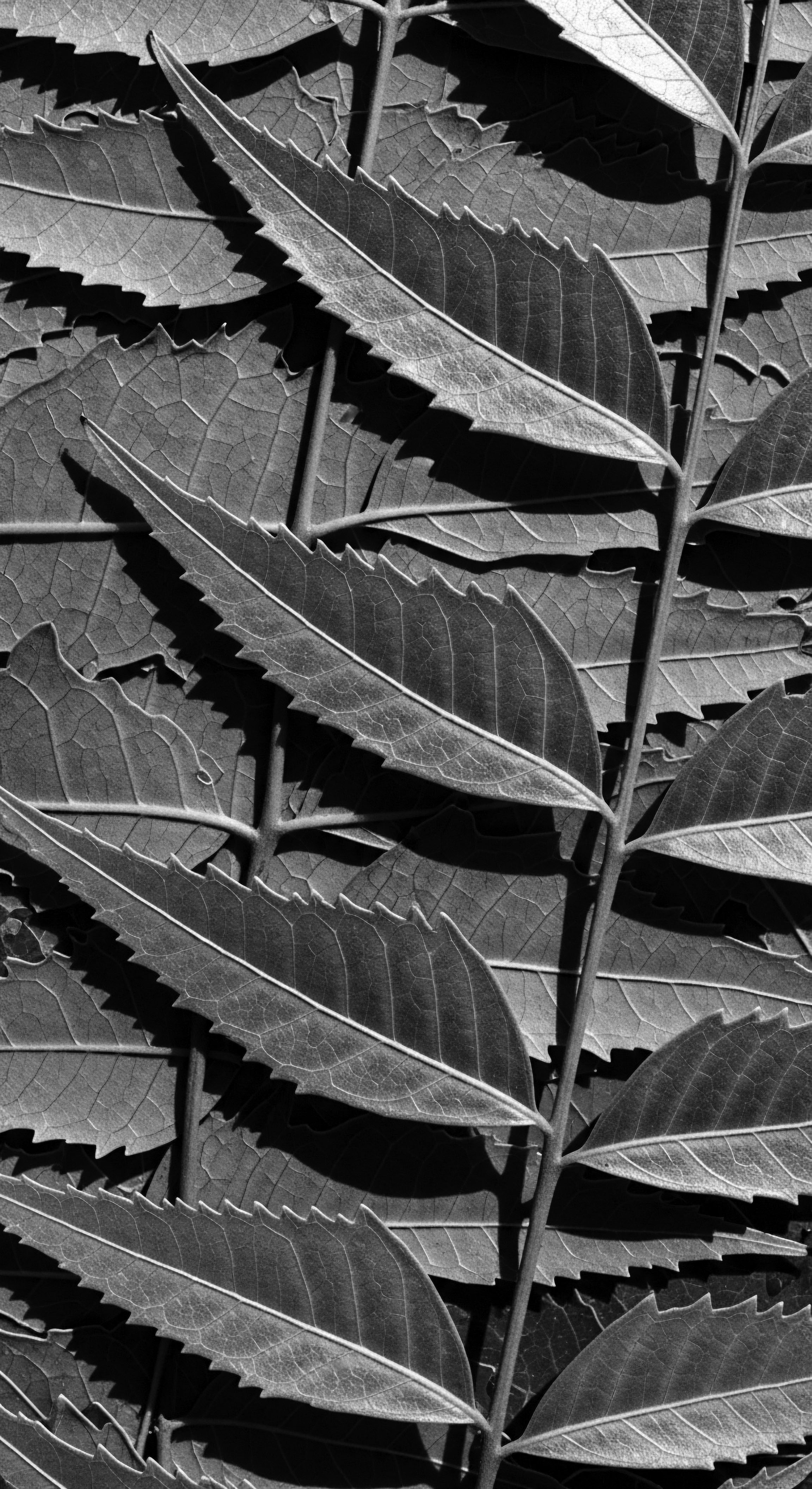
The Lipid’s Humble Beginnings: Early Applications
The fundamental application of Coconut Oil in early ancestral practices for textured hair was rooted in its perceived capacity to provide moisture and protection. Hair, particularly hair with intricate curl patterns, can be prone to dryness and requires consistent lubrication to maintain its integrity and prevent breakage. The inherent characteristics of Coconut Oil, even without a modern scientific lexicon, were understood through direct observation: it softened the strands, imparted a noticeable luster, and seemed to shield the hair from environmental stressors. This intuitive understanding formed the basis of centuries of hair care wisdom.
In many pre-colonial African societies, the meticulous care of hair was an elaborate art form, a practice deeply intertwined with social status, spiritual beliefs, and identity. While specific records of coconut oil use in all regions are varied due to diverse botanical availability, the broader practice of oiling hair with indigenous plant extracts was universal. Oils from shea, palm, and other regional botanicals were regularly applied to hair, demonstrating an ancestral comprehension of the need for emollience and protection for tightly coiled and curly textures.
Where coconut palms were present, such as along coastal West Africa or later in the Caribbean due to trade and displacement, coconut oil seamlessly integrated into these established traditions of hair nourishment and adornment. This adaptation speaks to the oil’s efficacy and its natural alignment with the needs of textured hair.
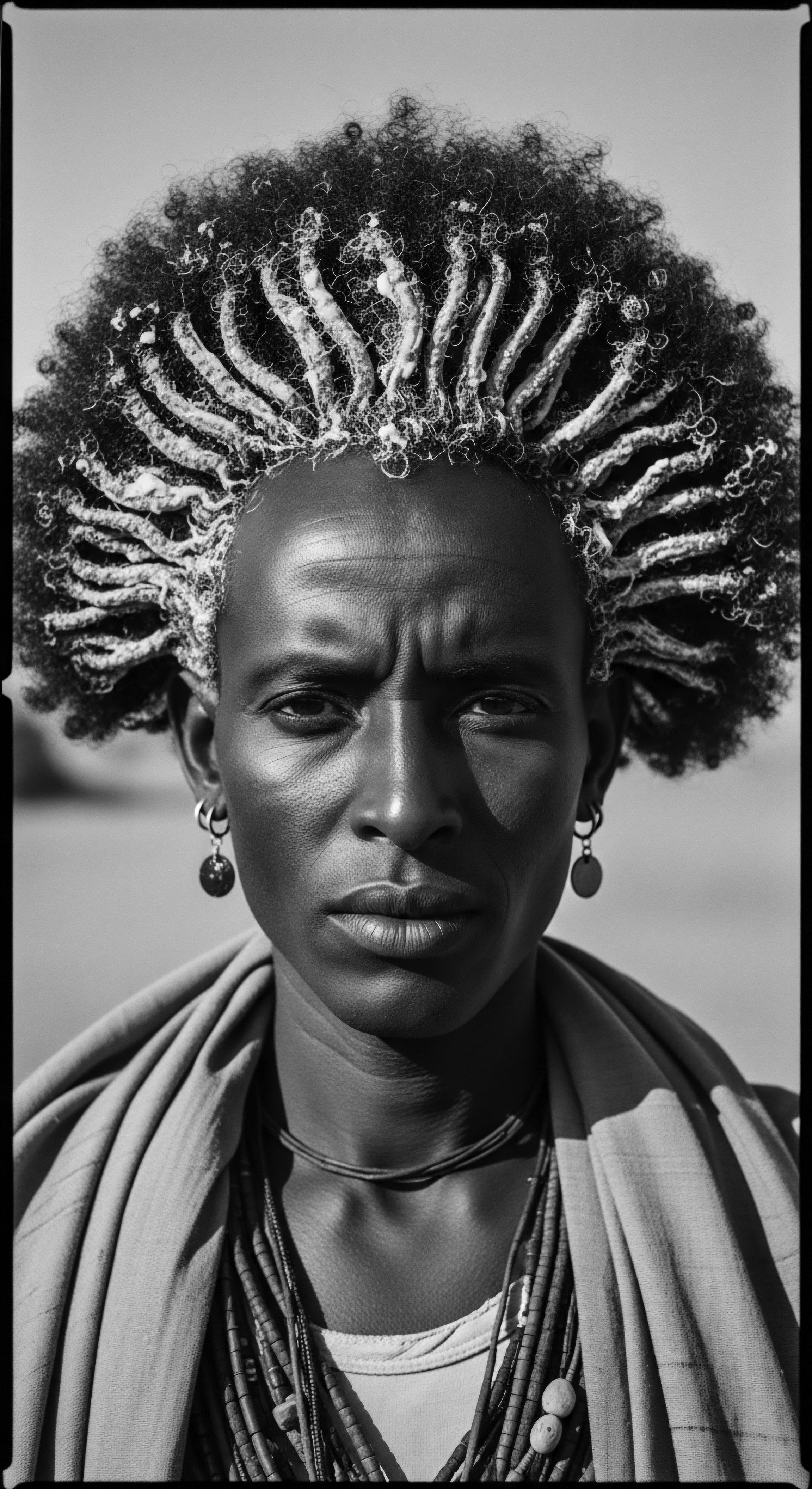
Intermediate
Moving beyond the foundational understanding, the intermediate meaning of Coconut Oil for textured hair care reveals itself through the continuous stream of heritage practices that have been carefully passed down and creatively adapted across generations. This section defines Coconut Oil not merely as a botanical extract but as a dynamic participant in the living rituals and styling practices that define the journey of Black and mixed-race hair. It speaks to how ancestral knowledge, rather than being static, has evolved, absorbing new contexts while retaining its core reverence for natural care. The deeper understanding of Coconut Oil at this level involves appreciating its role in maintaining hair health amidst historical challenges, shaping cultural expressions, and serving as a quiet yet powerful act of self-preservation.
The transmission of hair care wisdom within diasporic communities often occurred through the tender thread of familial instruction, shared experiences, and communal gatherings. Grandmothers teaching daughters, aunties guiding nieces, and friends exchanging remedies ❉ these were the informal academies where the practical applications and profound significance of Coconut Oil were imparted. The routines of washing, detangling, oiling, and styling became moments of connection, fostering a sense of belonging and reinforcing cultural identity. The very act of applying Coconut Oil, with its distinctive scent and texture, could transport individuals back to the comforting embrace of childhood memories and the collective strength of their forebears.

Diasporic Pathways of Knowledge: Adaptation and Continuity
The journey of Coconut Oil is inextricably linked to the forced migrations and resilient adaptations of peoples of African descent. As enslaved Africans were displaced across oceans, they carried with them not only their memories and spiritual fortitude but also their embodied knowledge of hair care. While access to specific indigenous botanicals was often denied, the innate understanding of how to tend to textured hair persisted.
In the Caribbean, where coconut palms were abundant, Coconut Oil became a readily available and highly valued resource, seamlessly integrated into existing hair care paradigms. It served as a vital tool for maintaining hair health under harsh conditions, protecting strands from the sun, salt, and the rigors of forced labor.
The enduring significance of Coconut Oil in these new contexts underscores its adaptability and efficacy. It was used to lubricate the scalp, soften tightly coiled hair, aid in detangling, and impart a protective sheen. This was not merely about aesthetics; it was about preserving dignity, maintaining a connection to a lost homeland, and subtly resisting the dehumanizing forces of enslavement.
Hair, carefully tended with precious oils, became a site of quiet rebellion, a visible affirmation of identity that could not be stripped away. The methods of preparation and application, while perhaps modified by necessity, retained the spirit of ancestral practices.
The story of Coconut Oil in textured hair care is a narrative of resilience, where ancient wisdom found new roots in diasporic lands, adapting and enduring through generations of shared care.

Rituals of Anointing and Protection: Practical Applications
The practical application of Coconut Oil in traditional hair care for textured strands often involved a meticulous, multi-step ritual. These rituals were designed to address the unique structural properties of curly and coily hair, which naturally tends to be drier and more prone to breakage due to its coiled structure and fewer cuticle layers. The oil’s ability to penetrate the hair shaft became a cornerstone of its efficacy.
A key aspect of this understanding is the scientific validation of a long-held ancestral practice: the use of Coconut Oil to mitigate protein loss from hair. Research has demonstrated that lauric acid, the primary fatty acid found in Coconut Oil, possesses a low molecular weight and a linear structure, allowing it to penetrate the hair shaft more effectively than many other oils. A study by Rele and Mohile (2003) revealed that Coconut Oil significantly reduces protein loss for both undamaged and damaged hair when used as a pre-wash and post-wash grooming product, unlike mineral or sunflower oils which primarily offer surface coating.
This scientific finding lends contemporary credence to centuries of ancestral observation, confirming that the intuitive choice of Coconut Oil for pre-shampoo treatments or daily oiling was indeed grounded in its unique molecular affinity for hair proteins. This protective quality is particularly valuable for textured hair, which experiences significant stress during washing due to the expansion and contraction of the hair shaft (hygral fatigue), leading to cuticle damage and protein loss.
This deeper comprehension of Coconut Oil’s properties elevates its meaning beyond a simple moisturizer. It signifies a protective shield, a fortifier of the hair’s internal structure, enabling textured strands to withstand the rigors of daily manipulation and environmental exposure. The practices of sealing moisture, detangling, and promoting scalp health, all central to traditional hair care, find a powerful ally in Coconut Oil.
- Pre-Poo Treatments ❉ Applying Coconut Oil before shampooing to shield hair from excessive water absorption and reduce hygral fatigue, a practice intuitively understood by those who oiled their hair before cleansing.
- Scalp Massages ❉ Utilizing Coconut Oil to nourish the scalp, promote circulation, and address dryness, echoing ancient traditions of scalp anointing for health and spiritual connection.
- Sealing Moisture ❉ Layering Coconut Oil over water or leave-in conditioners to seal in hydration, a method passed down to maintain suppleness in arid climates or between wash days.
- Detangling Aid ❉ Employing the oil to provide slip and reduce friction during the detangling process, thereby minimizing breakage for fragile, coily strands.
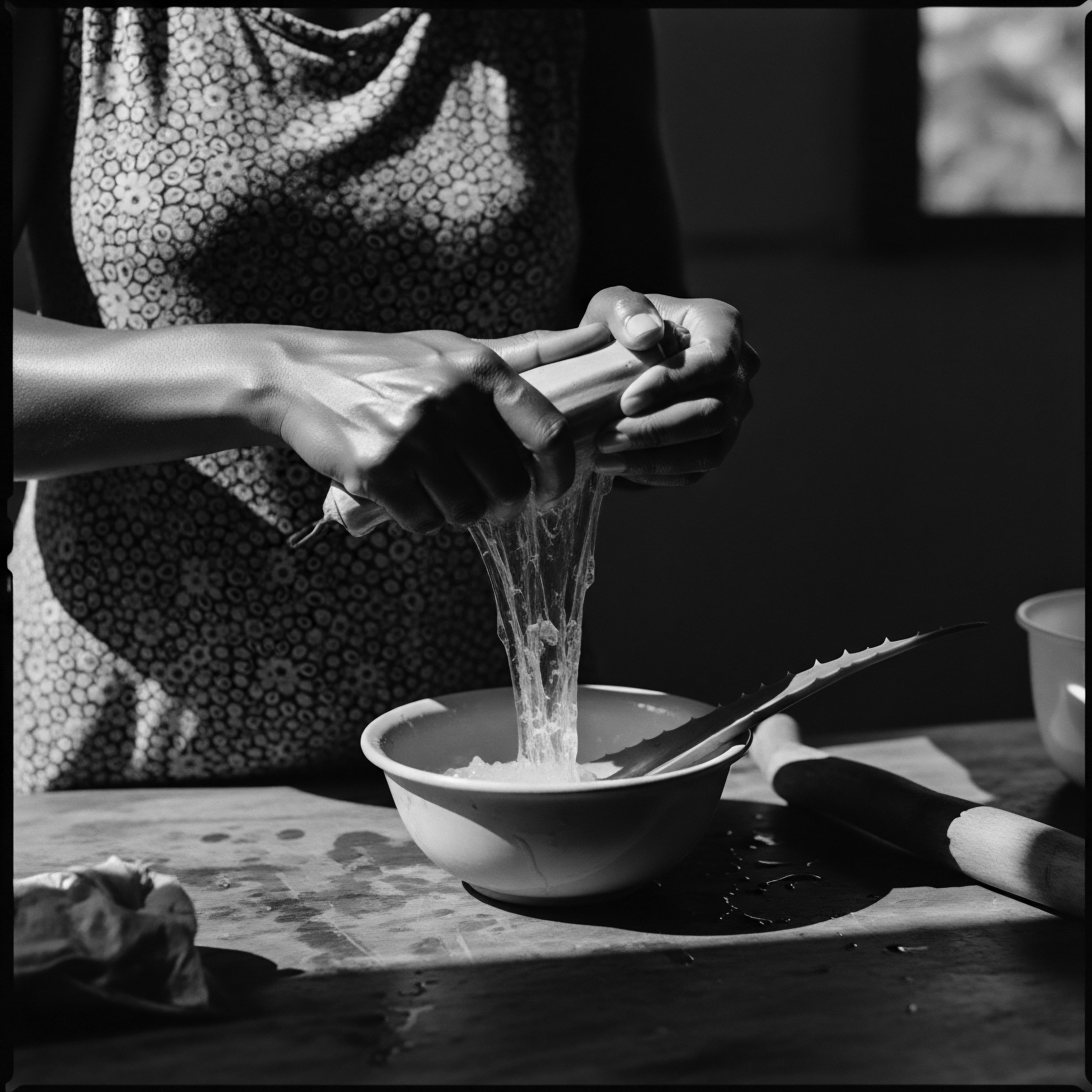
Community and Shared Practices: The Collective Thread
The application of Coconut Oil was rarely a solitary act; it was often a communal endeavor, especially within families and close-knit communities. Hair care sessions became spaces for storytelling, for sharing wisdom, and for reinforcing familial bonds. In many African and diasporic cultures, hair dressing was a social event, a time for women to gather, to connect, and to impart life lessons alongside hair techniques.
The act of tending to one another’s hair, often with the generous application of oils like coconut, symbolized care, trust, and continuity. This shared experience solidified the oil’s meaning as a tangible representation of collective well-being and cultural solidarity.

Academic
At the academic zenith of its explication, the meaning of Coconut Oil transcends simple definition, presenting itself as a complex interplay of biochemical efficacy, anthropological significance, and a potent symbol within the broader discourse of textured hair, Black hair, and mixed-race hair heritage. This advanced understanding demands a rigorous analysis, dissecting the oil’s molecular architecture, tracing its historical pathways across continents, and recognizing its profound role in shaping identity, resilience, and resistance through time. It is here that the profound insights into the ‘Soul of a Strand’ truly resonate, connecting scientific precision with the deep, enduring currents of ancestral wisdom.
The exploration at this level considers the Coconut Oil not merely as a product but as a subject of scholarly inquiry, examining its historical impact on hair health within specific diasporic communities and its continued relevance in decolonizing beauty standards. We delve into the theoretical frameworks that explain its biological compatibility with hair fibers, the anthropological narratives that embed it within cultural memory, and the social implications of its reclamation in contemporary natural hair movements. Each facet contributes to a compound, deeply insightful elucidation of Coconut Oil’s full significance and its implications for understanding and celebrating this living heritage.
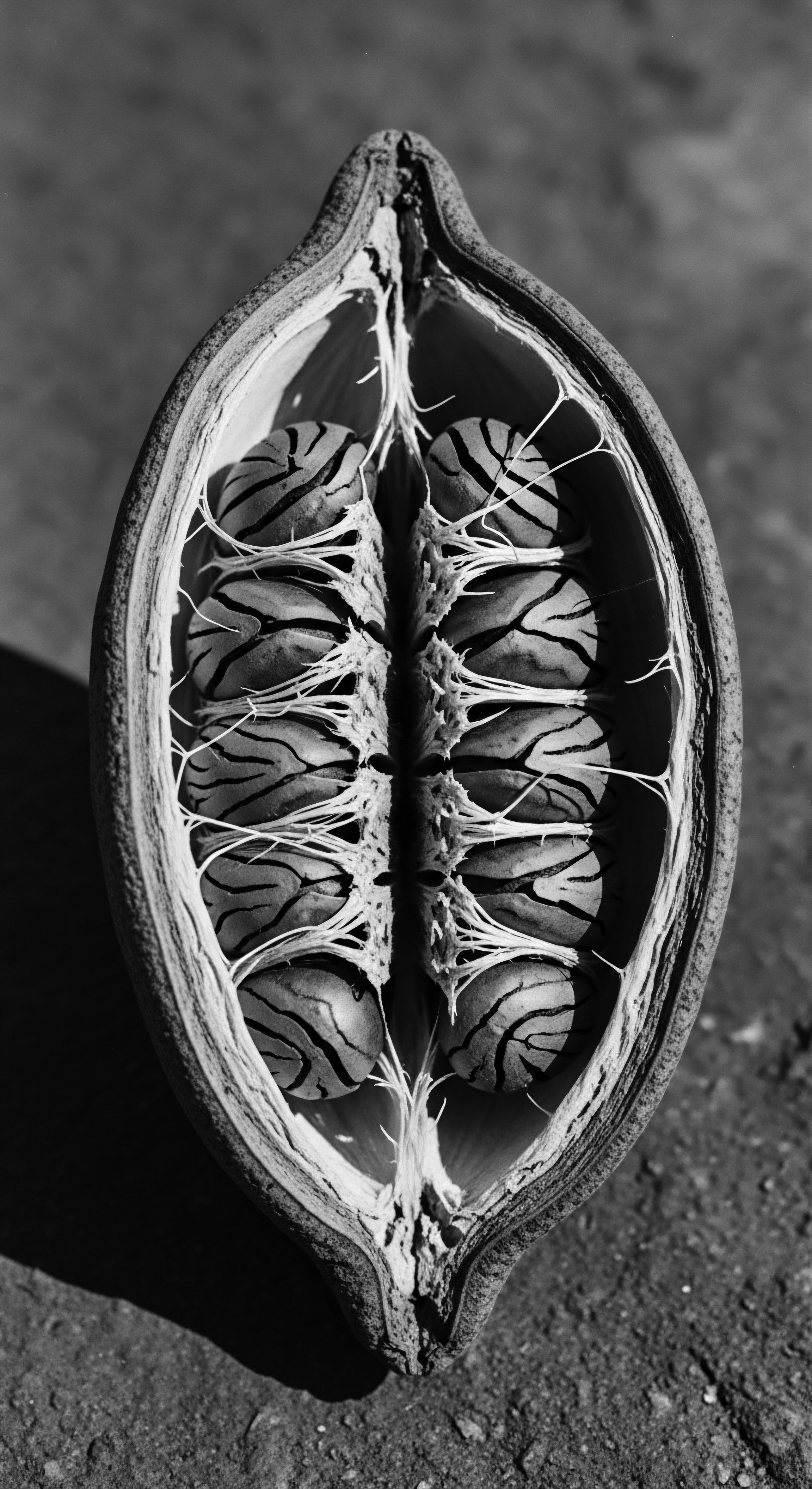
The Biochemistry of Ancestral Efficacy: Unveiling Molecular Harmony
From a scientific standpoint, the remarkable affinity of Coconut Oil for hair fibers is attributed to its unique chemical composition. It is predominantly composed of medium-chain fatty acids, with lauric acid (C12:0) constituting approximately 40-50% of its total fatty acid content. This specific molecular structure, characterized by a straight, linear chain and a relatively low molecular weight, enables Coconut Oil to penetrate the hair shaft more deeply and effectively than many other plant-based oils or mineral oils.
This penetrative capability is critical for the integrity of textured hair, which, due to its helical structure and often higher porosity, can be more susceptible to protein loss and damage from hygral fatigue ❉ the stress caused by repeated swelling and deswelling of the hair fiber during washing and drying. When applied, lauric acid molecules can bind to the hair proteins, specifically the keratin, thereby reducing the amount of water absorbed by the hair shaft and subsequently mitigating the expansion and contraction that leads to cuticle lifting and protein efflux. This biochemical mechanism provides a compelling scientific validation for the centuries-old ancestral practice of using Coconut Oil as a pre-shampoo treatment or a regular hair conditioner, intuitively recognizing its protective qualities against environmental and mechanical stressors. The effectiveness of this ancient practice, now explained by modern chemistry, highlights a continuous thread of understanding about hair health.
Beyond protein retention, the oil’s presence within the hair fiber also contributes to its overall strength and elasticity. By filling microscopic gaps and reinforcing the lipid matrix of the hair, Coconut Oil reduces internal friction and enhances the hair’s resistance to breakage. This particular attribute is of paramount importance for tightly coiled and curly hair types, which are inherently more fragile at their bends and twists. The oil’s antimicrobial properties, attributed to lauric acid’s conversion to monolaurin, further contribute to scalp health, creating an optimal environment for hair growth ❉ a benefit implicitly understood and valued in ancestral hair care rituals that emphasized holistic well-being.
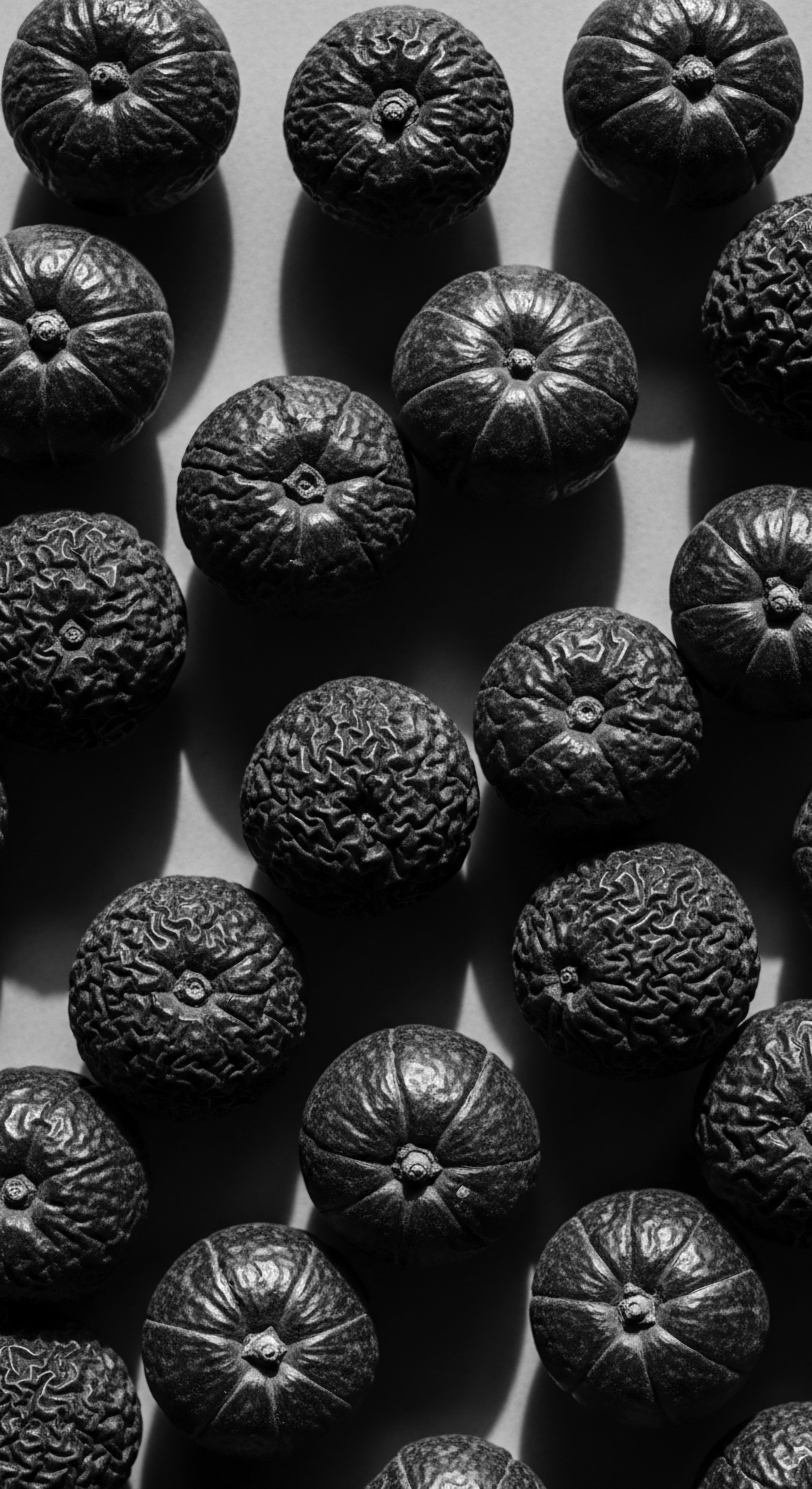
Decolonizing Hair Science: Reclaiming Indigenous Knowledge
The academic lens on Coconut Oil in textured hair heritage also demands a critical examination of how scientific knowledge has historically intersected with, and at times, overshadowed or dismissed, indigenous wisdom. For generations, ancestral communities developed sophisticated systems of hair care, often relying on locally available botanicals like the coconut. These practices were rooted in deep observation, experimentation, and a holistic understanding of the body’s connection to its environment. Yet, with the advent of colonialism and the imposition of Eurocentric beauty standards, traditional hair care practices, including the use of Coconut Oil, were frequently devalued or even demonized.
The contemporary scientific validation of Coconut Oil’s benefits for textured hair represents a significant step in the ongoing process of decolonizing hair science. It is a recognition that indigenous knowledge systems, far from being superstitious or unsophisticated, often contained profound truths about the natural world and its applications for human well-being. This re-evaluation necessitates a shift from a top-down approach, where Western science dictates what is “effective,” to a more reciprocal dialogue, where ancestral practices are respected, studied, and integrated into a more comprehensive understanding of hair biology and care. The academic endeavor becomes one of listening to the echoes of the past, seeking to understand the “why” behind the “what” of traditional rituals, and thereby enriching our collective knowledge.
Consider the broader implications for public health and cultural competency within dermatology and cosmetology. Historically, textured hair has been pathologized or misunderstood within Western medical frameworks, leading to inadequate care and the perpetuation of harmful practices. By rigorously studying and validating the efficacy of traditional ingredients and methods, such as those involving Coconut Oil, contemporary science can contribute to culturally sensitive care models. This shift supports individuals in embracing their natural hair textures and ancestral practices, fostering both physical hair health and psychological well-being.
Coconut Oil’s journey from ancestral remedy to scientifically validated staple exemplifies the enduring power of indigenous knowledge, offering a pathway to decolonize beauty narratives and celebrate textured hair in its authentic glory.
This academic inquiry also extends to the socio-economic dimensions of Coconut Oil production and its impact on the communities that have historically cultivated it. A nuanced understanding acknowledges the complexities of global trade, sustainability, and fair practices, ensuring that the renewed global interest in Coconut Oil benefits the communities whose heritage is intrinsically linked to its cultivation and traditional use.
- Ethnobotanical Studies ❉ Research into how indigenous communities traditionally harvested, processed, and applied Coconut Oil, documenting the cultural rituals and beliefs surrounding its use.
- Chemical Analysis of Traditional Preparations ❉ Investigating the biochemical differences and potential benefits of traditionally prepared Coconut Oil (e.g. fermented vs. cold-pressed) compared to commercially refined versions.
- Historical Anthropology of Hair ❉ Examining how Coconut Oil’s role in hair care reflects broader societal structures, identity formation, and resistance movements across different historical periods and geographical locations.
- Consumer Behavior and Cultural Reclamation ❉ Analyzing the motivations behind the resurgence of Coconut Oil use in contemporary natural hair movements, linking it to identity politics, self-acceptance, and a return to ancestral practices.
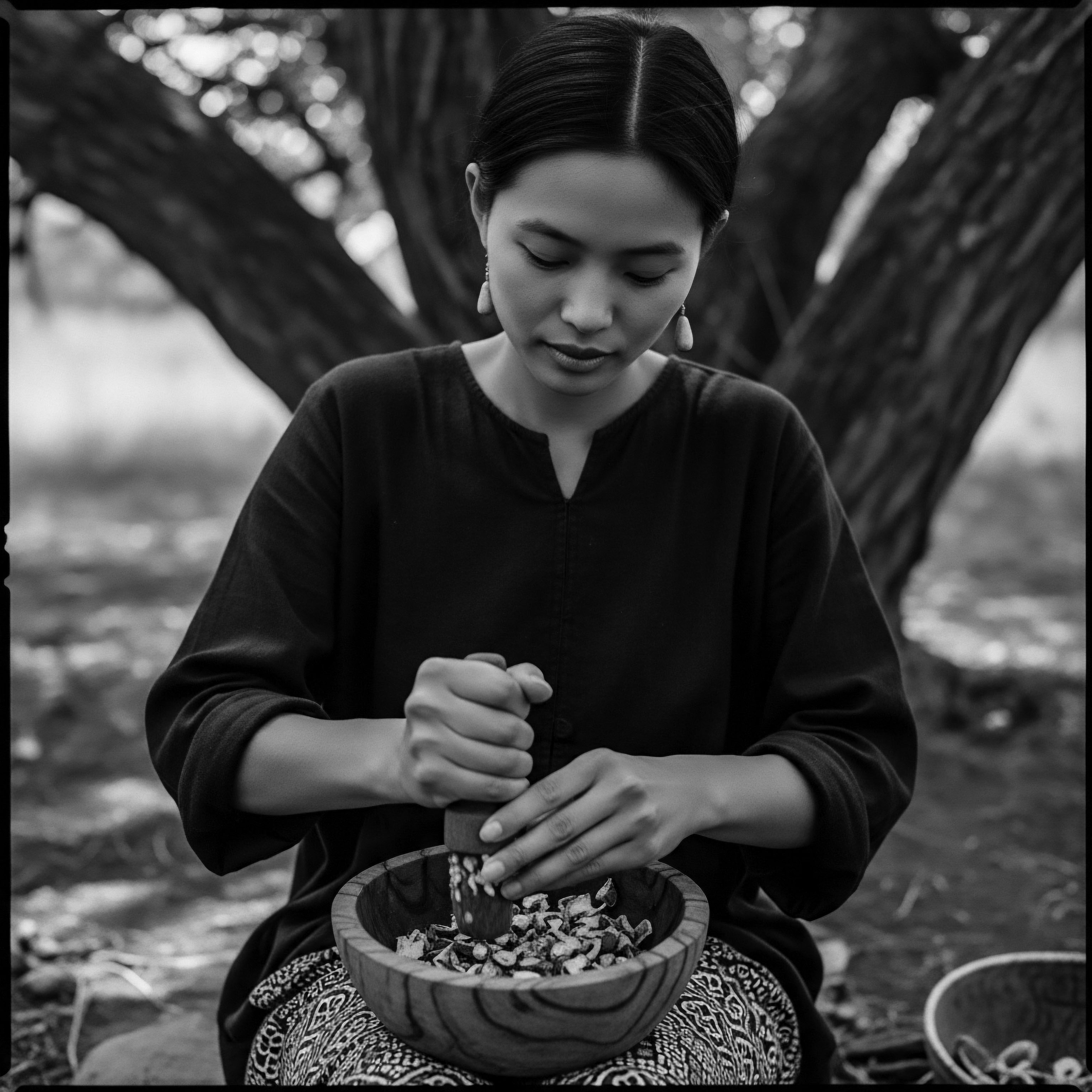
Coconut Oil as a Symbol of Resistance and Reclamation: The Unbound Helix
In its most advanced interpretation, Coconut Oil functions as a potent symbol within the ongoing saga of textured hair identity. It represents more than a mere emollient; it embodies a quiet yet powerful act of resistance against homogenized beauty standards and a deliberate reclamation of ancestral pride. For many with Black and mixed-race hair, the conscious choice to incorporate Coconut Oil into their regimen is a direct lineage to forebears who relied on natural remedies and maintained their hair with profound care, even in the face of systemic oppression.
The significance of Coconut Oil in this context is deeply intertwined with the historical struggle for self-definition. During periods of enslavement and colonialism, African hair was often subjected to violent erasure and forced conformity to Eurocentric ideals. The simple act of oiling one’s hair, of maintaining its natural texture, became a subtle yet profound assertion of selfhood and cultural continuity. Today, as individuals worldwide embrace their natural textures, Coconut Oil stands as a tangible link to that enduring legacy.
It is a material representation of the knowledge that survived, the beauty that persisted, and the spirit that refused to be broken. The choice to use Coconut Oil is, for many, a political statement, a declaration of belonging, and a celebration of an unbound heritage.
This profound connection to heritage extends beyond individual use, fostering global communities united by a shared appreciation for natural hair care traditions. Online platforms and social gatherings become contemporary hearths where knowledge about Coconut Oil, its applications, and its cultural narratives are exchanged, mirroring the communal practices of generations past. This collective rediscovery and affirmation of Coconut Oil’s value solidify its place as a cornerstone in the ongoing journey of self-love and cultural celebration for those with textured hair.

Reflection on the Heritage of Coconut Oil
As we close this exploration within Roothea’s living library, the story of Coconut Oil emerges not as a static entry but as a vibrant, breathing testament to the enduring wisdom of our forebears. Its journey from the elemental generosity of the coconut palm to a globally recognized staple for textured hair care is a profound meditation on resilience, adaptation, and the unbroken chain of ancestral knowledge. The ‘Soul of a Strand’ ethos, which guides our understanding, finds deep resonance in the unassuming yet potent nature of this oil. It reminds us that true beauty care is never separate from history, community, or identity.
The persistent presence of Coconut Oil across centuries and continents, through periods of plenty and profound scarcity, underscores its inherent value and its deep connection to the physical and spiritual well-being of textured hair. It is a symbol of continuity, a tender thread connecting us to the hands that first pressed its rich essence, to the voices that shared its benefits around communal fires, and to the spirits that found solace and strength in its protective embrace. This heritage is not merely a relic of the past; it is a living force, informing our present choices and illuminating pathways for future generations to cherish and uphold the unique beauty of their hair. The meaning of Coconut Oil, therefore, is an ongoing revelation, inviting us to look deeper, listen more closely, and honor the profound legacy held within each strand.

References
- Byrd, A. & Tharps, L. (2001). Hair Story: Untangling the Roots of Black Hair in America. St. Martin’s Press.
- Dabiri, E. (2019). Twisted: The Tangled History of Black Hair Culture. Harper Perennial.
- Mouchane, M. Taybi, H. Gouitaa, N. & Assem, N. (2023). Ethnobotanical Survey of Medicinal Plants used in the Treatment and Care of Hair in Karia ba Mohamed (Northern Morocco). Journal of Medicinal plants and By-Products, 13(1), 201-208.
- Mustafa, K. Kanwal, J. Musaddiq, S. & Khakwani, S. (2022). Ethnobotanical and Pharmacological Importance of the Herbal Plants With Anti-Hair Fall and Hair Growth Activities. In Research Anthology on Recent Advancements in Ethnopharmacology and Nutraceuticals (pp. 62-75). IGI Global.
- Rele, A. S. & Mohile, R. B. (2003). Effect of mineral oil, sunflower oil, and coconut oil on prevention of hair damage. Journal of Cosmetic Science, 54(2), 175-192.
- Rooks, N. M. (1996). Hair Raising: Beauty, Culture, and African American Women. Rutgers University Press.
- Roseborough, I. E. & McMichael, A. J. (2009). Hair Care Practices in African-American Patients. Seminars in Cutaneous Medicine and Surgery, 28(2), 103 ❉ 108.

